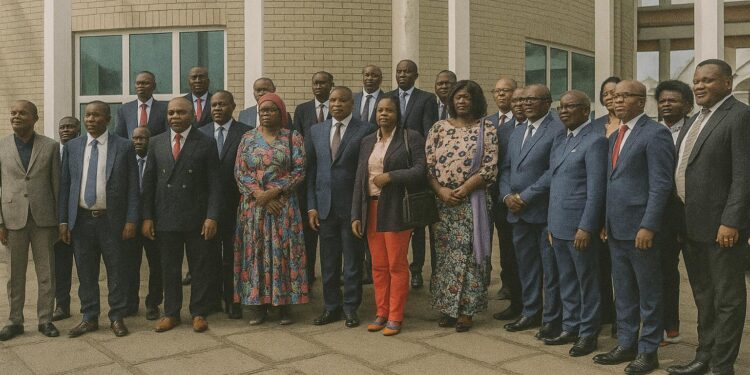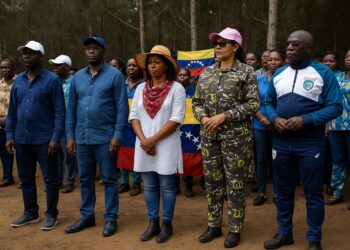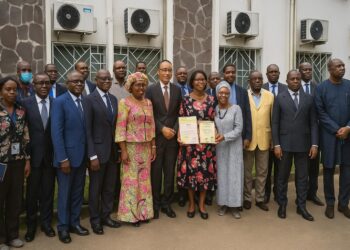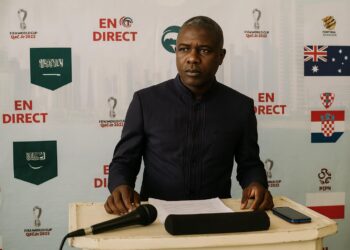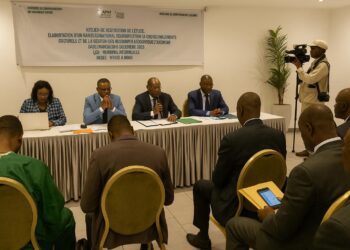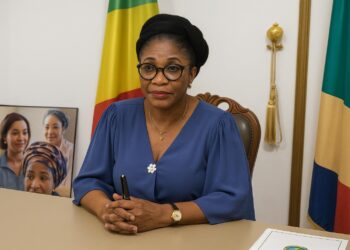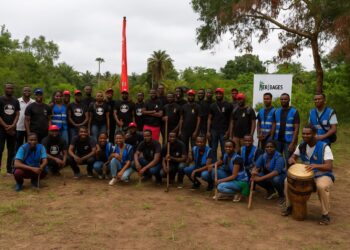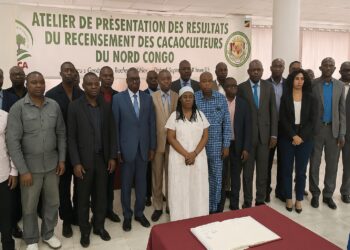Momentum builds around a consultative roundtable in Brazzaville
A discreet, almost studious atmosphere settled over Brazzaville’s conference centre as representatives of government, civil society, academia and the private sector opened a two-day roundtable on the future of Congo-Brazzaville’s economy. Convened under the theme of forging a ‘just, inclusive and strategically concerted’ transition, the meeting reflects a growing consensus: the country cannot indefinitely rely on petroleum, which still accounts for roughly 60 percent of state revenue (World Bank 2023). Panelists embraced the symbolism of debating a post-oil paradigm in a city whose modern skyline was financed by hydrocarbons, yet whose climate vulnerability is already visible in erratic rainfall and flooding.
Civil society steers the narrative toward a low-carbon horizon
Christian Mouzeo, coordinator of the non-governmental organisation Rencontre pour la paix et les droits de l’homme, opened deliberations with a gently insistent reminder that the window for gradual policy adjustment is narrowing. Over the past twelve months his team has canvassed stakeholders in Brazzaville, Pointe-Noire and Kouilou, cataloguing both anxieties and ambitions tied to the project ‘Preparing the Post-Petroleum Congo’. The result, he argued, is an embryonic social contract that places renewable energy at the heart of long-term stability. Echoing recent data from the International Energy Agency that Africa could triple its renewable capacity by 2030 with moderate investment (IEA 2022), Mouzeo framed the transition less as an environmental imperative and more as an opportunity for job creation in solar assembly, biomass valorisation and grid maintenance.
Governmental signals of continuity and reform
The interim Director-General for Sustainable Development, Olga Ossombi Mayela, responded with deliberate pragmatism. She acknowledged that the dominant share of fiscal receipts will, for the foreseeable future, continue to derive from crude exports. Nevertheless, she maintained that the forthcoming national roadmap—expected to be annexed to the 2024-2028 Development Plan—will integrate incentives for green entrepreneurship, from customs rebates on photovoltaic equipment to concessional credit lines for micro hydro facilities along the Lefini and Sangha rivers. Such measures dovetail with President Denis Sassou Nguesso’s recurrent appeals at sub-regional forums for ‘energy sovereignty compatible with climatic responsibility’, a formulation that reassures investors while avoiding abrupt disruption of existing contracts.
Economic calculus of diversification and finance
Behind the diplomatic language lies a hard-edged fiscal calculus. Petroleum rents have been volatile; benchmark Brent swung from under 20 dollars per barrel in 2020 to above 90 dollars two years later. This volatility complicates debt servicing, as Congo’s public debt hovers near 88 percent of GDP (African Development Bank 2023). A calculated expansion of renewables could cushion shocks by generating foreign-exchange savings on imported diesel for power generation and by attracting climate finance. Preliminary modelling by the Ministry of Economy suggests that meeting 30 percent of national electricity demand with renewables by 2035 could shave roughly 250 million dollars off annual fuel imports while creating up to 20 000 skilled and semi-skilled jobs. International financiers are already testing the waters: the Green Climate Fund has signalled readiness to co-finance grid upgrades, and a Franco-Congolese consortium recently broke ground on a 40-megawatt solar park outside Impfondo.
Regional cooperation and geopolitical ramifications
Congo-Brazzaville’s posture resonates across Central Africa, a region endowed with vast hydrological resources yet characterised by limited cross-border interconnection. By advancing its own renewable portfolio, Brazzaville positions itself as a potential supplier of surplus green electricity to the Economic Community of Central African States, enhancing both diplomatic leverage and revenue diversity. Moreover, a lower carbon intensity fortifies the country’s standing in negotiations over carbon credit mechanisms anchored in the Congo Basin’s absorptive forests (UNDP 2023). Several delegates privately noted that substituting diesel generators with run-of-river micro plants in border districts could mitigate illicit fuel flows, a persistent security headache.
An incremental path toward an inclusive green future
The roundtable did not produce grandiose pronouncements, yet its importance lies in incremental consensus building. Participants converged on a phased strategy that safeguards existing oil revenue while scaling distributed renewables, with an emphasis on local ownership and gender-responsive employment. The closing communique pledged to deliver a costed roadmap within six months, supervised jointly by the Ministry of Hydrocarbons and the Ministry of Environment, thereby signalling cabinet-level alignment. Observers described the tone as sober but cautiously optimistic—an outlook consistent with Congo-Brazzaville’s broader diplomatic habit of balancing continuity and evolution. In this calibrated posture, the Republic finds room to pursue solar confidence without disavowing the historical role of crude comfort.

































